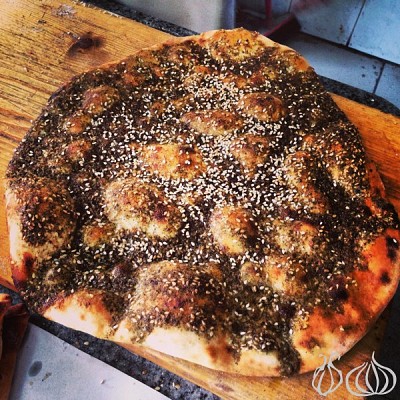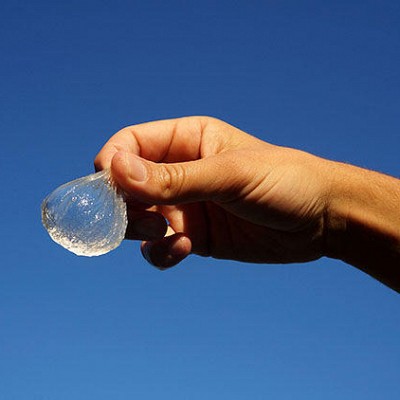All over the Near East and North Africa, the holy month of Ramadan means the return of certain specialties: food, sweets, juices, caffeinated drinks, social and family gatherings, and the list can go on and on.

Ramadan is a great time to celebrate what we have and to appreciate it. Yet, we tend to find that Ramadan has become synonymous with over-eating and food waste. In addition, Ramadan this year is coming amidst the COVID-19 crisis, which is affecting people’s health, diet behavior and food security.

In general, 1/3 of all the food produced in the Near East and North Africa region is either lost or wasted. That amounts to 250 kg of food per capita and around $60 billion annually. And food isn’t the only thing that is wasted when it goes uneaten: all of the resources (like seeds, water, feed, etc.), money and labour that go into making it are also lost.
It is worth noting that although the region is one of the most water scarce regions in the world, its population wastes up to 30 percent of its scarce natural resources and energy because of lost or wasted food.
Many countries in the region also have to shoulder a large burden, with the existence of under-nutrition, overweight, obesity and diet-related chronic diseases in the same family, community, and country.

The COVID-19 pandemic is causing many changes in the daily lives of people around the world. During the pandemic and the associated lockdown, risks of unhealthy diets become higher, and therefore, it is essential to maintain nutritious and healthy diets.
The COVID-19 pandemic is also putting more strain on food availability. Border closures, quarantines, and market supply chain and trade disruptions could restrict people’s access to sufficient, diverse and nutritious sources of food, especially in countries hit hard by the virus or already affected by high levels of food insecurity. In short, the food industry, like everything in our lives, has been upended by the coronavirus pandemic. And when it comes to perishable items like food, uncertainty can lead to waste.
Therefore, while we celebrate Ramadan with our loved ones during these difficult times, let us appreciate what we have and save it. There are a few and easy things that can be done to maintain a better lifestyle in these difficult times. This is a period of colossal readjustment. Let’s all work together and change our habits during this month and forever for a better future. Always remember: what we do today will help shape our life tomorrow so #Act4thefuture.

Here are some tips on how to avoid bad habits and take action for a better future during Ramadan and the COVID-19 pandemic:
- Strengthen your immune system through a proper diet: Increase your consumption of fruits and vegetables, with at least five servings a day. They contain a lot of vitamins A and C, in addition to antioxidants, which will help you fight infections. Eat legumes, nuts and whole grains at least three times a week: they keep for a long time, are inexpensive and will help you stay healthy, because they are high in proteins and iron.
- Watch your intake of fats, sugar, and salt: Many people in times of high stress use food as a comfort, which can lead to overconsumption. Furthermore, foods in which we find comfort are oftentimes very palatable because they are high in fat, sugar, salt and calories. Try to avoid eating too much of these ingredients not only as comfort foods but also across everything you eat.
- Know your fats! Unsaturated fats are better than saturated and trans-fats: While unsaturated fats (found in fish, nuts, and in sunflower, soybean, canola and olive oils) are part of a healthy diet, you need to watch your intake of industrially produced trans-fats found in fried foods, among others. Saturated fats should also be limited (found in fatty meat, butter etc.).
- Keep fresh and waste less: Storing your food properly can help to keep it fresh, safe and save precious nutrients. When you stock up the cupboards or fridge, move older products to the front and new ones to the back. Use air-tight containers to keep food fresh in the fridge and close packets to prevent them from spoiling.
- Do not throw away your leftovers: If you cooked too much, freeze your meals so they last longer to avoid waste, in addition to having a preparation ready for another occasion, without much effort. Remember: food must be in good condition to consume it!
- Turn the leftover food into the next day’s iftar or suhoor: There are many creative recipes on the internet for using leftovers. In fact, several dishes like casseroles, goulash, fattoush and panzanella started from the desire not to waste fruits, vegetables or even excess bread. Make sure that you store any leftovers in the refrigerator and use it as soon as possible.
- Share what you don’t use and leftovers: If you buy extra cans, dried goods or other non-perishable food that can be donated, there are many local charities that happily accept these foods. Check the internet for places near you that accept donations. If you have leftovers from the day’s iftar or suhoor, share it with people around you who may be in need or contact local institutions to come collect it and deliver it to the hungry.
- Drink water regularly: Staying well hydrated, mainly through drinking ample amounts of plain water (6-8 glasses a day for most adults) also helps our immune system. Drinking plain water instead of sugar/sweetened beverages also helps reduce the risk of consuming too many calories for maintaining a healthy weight.
- Continue to practice good food hygiene: it is always good to remember how we can support food safety by practicing the five keys to food safety: (1) keep clean; (2) separate raw and cooked; (3) cook thoroughly; (4) keep food at safe temperatures; and (5) use safe water and raw materials.
- Exercise at least 30 minutes every day: Adults should dedicate at least 2.5 hours to physical activity each week, be it during leisure time, sports, commuting to work, or other physical activity you carry out, at work or at home. Children and youth should dedicate at least 60 minutes to physical activity each day, through play, sports, commuting or physical education.
- Buy only what you need: Be smart with your shopping. Make a list of what you need and stick to it. Don’t buy more than you can use. When you overshop, more food goes to waste and others are left with none.
- Everyone can play a part! We encourage you to help people re-connect with a better lifestyle and share your knowledge and passion with those around you: your family, friends and colleagues. For example, learn to cook or swap recipes, grow your own food, share tips on how to reduce food waste and even ways on how to stay healthy and physically fit.

This Ramadan, remember that being healthy and having enough food and water is a privilege. Do not waste it!
For more information:
- Q&A: COVID-19 pandemic – impact on food and agriculture: http://www.fao.org/2019-ncov/q-and-a/en/
- Maintaining a healthy diet during the COVID-19 pandemic: http://www.fao.org/3/ca8380en/CA8380EN.pdf
- Recipe for a healthy life: http://www.fao.org/world-food-day/take-action/en/
- Food Loss and Food Waste: http://www.fao.org/food-loss-and-food-waste/en/
- Food Loss and Waste in the Near East and North Africa: http://www.fao.org/neareast/perspectives/food-waste/en/






































